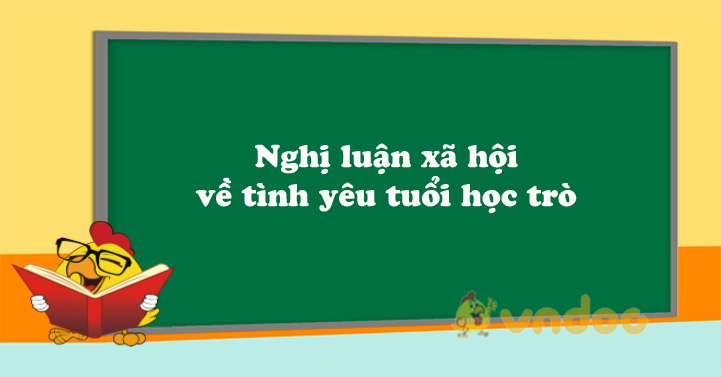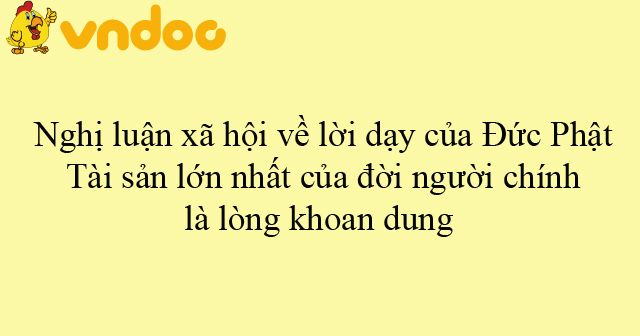ĐỀ ĐÁNH GIÁ NĂNG LỰC GIAI ĐOẠN TĂNG TỐC 1
Mark the letter A, B, C, or D on your answer sheet to indicate the word whose underlined part differs from the other three in pronunciation in each of the following questions.
Question 1. A. laughed B. sacrificed C. cooked D. explained
Question 2. A. candy B. sandy C. many D. handy
Mark the letter A, B, C, or D on your answer sheet to indicate the word that differs from the other three in the position of primary stress in each of the following questions.
Question 3. A. economics B. considerable C. capability D. optimistic
Question 4. A. solidarity B. communicative C. documentary D. dedication
Mark the letter A, B, C, or D on your answer sheet to indicate the correct answer to each of the following questions.
Question 5. They have __________ a lot of extensive research into renewable energy sources.
A. carried B. done C. solved D. made
Question 6. It is strongly recommended that the machines __________ every year.
A. be checked B. check C. to be checked D. is checked
Question 7. Tom didn’t know __________ or stay until the end of the festival.
A. whether to go B. if that he should go
C. to go D. if to go
Question 8. All candidates will be treated equally, __________ of their age or background.
A. irrelevant B. discounting C. notwithstanding D. irrespective
Question 9. He had changed so much since the last time we met that I __________ him.
A. could recognize B. could hardy recognize
C. wouldn’t have recognized D. don’t recognize
Question 10. I have no patience with gossips. What I told Tom was a secret. He __________ it to you.
A. mustn’t read B. shouldn’t have repeated
C. mustn’t have repeated D. shouldn’t read
Question 11. __________ we have!
A. What awful weather B. How awful is the weather
C. How awful the weather D. What an awful weather
Question 12. I am bored with doing the __________ chores.
A. household B. house C. housework D. homework
Question 13. In the end, he lost his __________ and started gabbling incoherently.
A. head B. mind C. brain D. intelligence
Question 14. There has been little rain in this region for several months, __________?
A. has it B. has there C. hasn’t it D. hasn’t there
Question 15. __________ high school, Nam attended a university in the city centre.
A. Having been finished B. To have finished
C. To finish D. Having finished
Question 16. The marathon, first staged in 1896, __________ the legendary feat of a Greek soldier who carried news of victory from the battle at Marathon to Athens.
A. commemorates B. commemorated
C. was commemorated D. commemorating
Question 17. My sister and I will never get along. We’re __________.
A. cats and dogs B. chalk and cheese
C. salt and pepper D. turn a deaf ear
Question 18. Mai’s marriage has been arranged by her family. She is marrying a man __________.
A. she hardly knows him B. whom she hardly know
C. she hardly knows D. that she hardly know
Mark the letter A, B, C, or D on your answer sheet to indicate the word(s) CLOSEST in meaning to the underlined word(s) in each of the following questions.
Question 19. I think we should tell Nam that the location of the picnic has been changed. Let’s keep him in the picture.
A. show him B. take his photo C. explain to him D. inform him
Question 20. The company lures workers with high salaries and good working conditions.
A. organizes B. fires C. attracts D. angers
Mark the letter A, B, C, or D on your answer sheet to indicate the word(s) OPPOSITE in meaning to the underlined word(s) in each of the following questions.
Question 21. It’s very difficult to tell her to give in because she is so big-headed.
A. wise B. generous C. modest D. arrogant
Question 22. A chronic lack of sleep may make us irritable and reduces our motivation to work.
A. calm B. miserable C. responsive D. uncomfortable
Mark the letter A, B, C, or D on your answer sheet to indicate the option that best completes each of the following exchanges.
Question 23. - Mai: “How lovely your pets are!”
- Huy: “ _____________ ”
A. Thank you, it’s nice of you to say so. B. Really? They are.
C. Can you say that again? D. I love them, too.
Question 24. - David : “ Do you fancy going to a movie this evening ? ”
- Lisa: “_______________”
A. I’m sorry. I don’t know that. B. Not at all. Go ahead.
C. Not so bad. And you ? D. That would be nice.
Read the following passage and mark the letter A, B, C, or D on your answer sheet to indicate the correct word or phrase that best fits each of the numbered blanks from 25 to 29.
Choosing a career can be one of the most important decisions you will (25) __________ in life. It’s about so much more than deciding (26) __________ you will do to make a living. To begin with, think about the amount of time we spend at work. We are on the job approximately 71% of every year. Over our lifetimes, this comes to roughly 31 % years out of the 45 years most of us spend (27) __________ , from the beginning of our careers until retirement. The importance of selecting a career with which we are satisfied cannot be overemphasized.
(28) __________ some people are lucky enough to just know what they want to do and end up in satisfying careers without giving it much thought, most of us are not. Many people don’t put enough (29) __________ into choosing occupations or pick them for the wrong reasons. Maybe they choose careers that seem secure or pay well. They then end up unhappy. The best way to make sure that doesn’t happen to you is to make a well-thought out decision.
Question 25. A. make B. do C. create D. take
Question 26. A. which B. when C. what D. why
Question 27. A. to work B. work C. worked D. working
Question 28. A. Whether B. But C. While D. Because
Question 29. A. money B. effort C. time D. love
Read the following passage and mark the letter A, B, C, or D on your answer sheet to indicate the correct answer to each of the questions from 30 to 34.
Cities develop as a result of functions that they can perform. Some functions result directly from the ingenuity of the citizenry, but most functions result from the needs of the local area and of the surrounding hinterland (the region that supplies goods to the city and to which the city furnishes services and other goods). Geographers often make a distinction between the situation and the site of a city. Situation refers to the general position in relation to the surrounding region, whereas site involves physical characteristics of the specific location. Situation is normally much more important to the continuing prosperity of a city. If a city is well situated in regard to its hinterland, its development is much more likely to continue. Chicago, for example, possesses an almost unparalleled situation: it is located at the southern end of a huge lake that forces east-west transportation lines to be compressed into its vicinity, and at a meeting of significant land and water transport routes. It also overlooks what is one of the world’s finest large farming regions. These factors ensured that Chicago would become a great city regardless of the disadvantageous characteristics of the available site, such as being prone to flooding during thunderstorm activity.
Similarly, it can be argued that much of New York City’s importance stems from its early and continuing advantage of situation. Philadelphia and Boston both originated at about the same time as New York and shared New York’s location at the western end of one of the world’s most important oceanic trade routes, but only New York possesses an easy-access functional connection (the Hudson-Mohawk lowland) to the vast Midwestern hinterland. This account does not alone explain New York’s primacy, but it does include several important factors. Among the many aspects of situation that help to explain why some cities grow and others do not, original location on a navigable waterway seems particularly applicable. Of course, such characteristic as slope, drainage, power resources, river crossings, coastal shapes, and other physical characteristics help to determine city location, but such factors are normally more significant in early stages of city development than later.
Question 30. What does the passage mainly discuss?
A. The development of trade routes through United States cities .
B. Contrasts in settlement patterns in United States .
C. Historical differences among three large United States cities .
D. The importance of geographical situation in the growth of United States cities.
Question 31. The word “ingenuity” in paragraph 1 is closest in meaning to _________.
A. wealth B. resourcefulness C. traditions D. organization
Question 32. According to the passage, a city’s situation is more important than its site in regard to the city’s __________.
A. long-term growth and prosperity B. ability to protect its citizenry
C. possession of favorable weather conditions D. need to import food supplies
Question 33. The author mentions each of the following as an advantage of Chicago’s location EXCEPT its __________.
A. hinterland B. nearness to a large lake
C. position in regard to transport routes D. flat terrain
Question 34. According to the passage, Philadelphia and Boston are similar to New York City in __________.
A. size of population B. age
C. site D. availability of rail transportation
Read the following passage and mark the letter A, B, C, or D on your answer sheet to indicate the correct answer to each of the questions from 35 to 42.
It is hard to think of a world without gas or electricity. Both are commonly used for lighting and heating today. We now can instantly flick a lighter or strike a match to make a flame. But it was not long ago that there were no such things as matches or lighters. To make fire, it was necessary to strike a piece of iron on flint for sparks to ignite some tinder. If the tinder was damp, or the flint old, you had to borrow some fire from a neighbor.
We do not know exactly when or how people first used fire. Perhaps, many ages ago, they found that sticks would bum if they were dropped into some hole where melted lava from a volcano lay boiling. They brought the lighted sticks back to make their fire in a cave. Or, they may have seen trees catch fire through being struck by lightning, and used the trees to start their own fires.
Gradually people learned they could start a fire without traveling far to find flames. They rubbed two pieces of wood together. This method was used for thousands of years.
When people became used to making fires with which to cook food and stay warm at night, they found that certain resins or gums from trees burnt longer and brighter. They melted resins and dipped branches in the liquid to make torches that lit their homes at night. Iron stands in which torches used to be fixed can still be seen in old buildings of Europe.
There was no lighting in city streets until gas lamps, and then electric lamps were installed. Boys ran about London at night carrying torches of burning material. They were called torch boys, or link boys, and earned a living by guiding visitors to friends’ houses at night.
For centuries homes were lit by candles until oil was found. Even then, oil lamps were no more effective than a cluster of candles. We read about the splendors and marvels of ancient palaces and castles, but we forget that they must have been gloomy and murky places at night.
Question 35. What does “they” refer to?
A. people B. ages C. sticks D. trees
Question 36. According to the passage the first fire used by people was probably obtained _________.
A. from the sun’s heat through glass B. by rubbing wood together
C. from heat or fire caused by nature D. by striking iron against flint
Question 37. It is stated in the passage that torches for lighting were made from __________.
A. the wood of gum trees B. iron bars dipped in melted resins
C. wooden poles dipped in oil D. tree branches dipped in melted resins
Question 38. It is mentioned in the passage that before the electric lamp was invented,__________.
A. oil lamps and then candles were used
B. candles and oil lamps appeared about the same time
C. candles and then oil lamps were used
D. people did not use any form of lighting in their houses
Question 39. The word “splendors” in the passage could be best replaced by which of the following?
A. expensive objects B. places of scenic beauty
C. achievements D. the beautiful and impressive features
Question 40. According to the passage, which of the following sentence is NOT true?
A. We know exactly when and how people first used fire.
B. Before gas lamps and electric lamps appeared, streets were lit by torches.
C. We can make a fire by striking a piece of iron on flint to ignite some tinder.
D. Matches and lighters were invented not long ago.
Question 41. The word “gloomy” in the passage is closest in meaning to __________.
A. nearly dark B. badly decorated
C. containing a lot of white D. mysterious
Question 42. What form of street lighting was used in London when link boys used to work there?
A. gas lighting B. no lighting at all
C. electric lighting D. oil lighting.
Mark the letter A, B, C, or D on your answer sheet to indicate the underlined part that needs correction in each of the following questions.
Question 43. (A) Physics and mental exercise (B) has been found to be beneficial to our brains, but scientists have now found (C) it could also improve the (D) learning ability of our children.
Question 44. Today the most popular method (A) of pasteurization, called ‘flash pasteurization’, involves several (B) step, (C) which include heating milk for 15 seconds (D) and then immediately cooling it.
Question 45. (A) What happened in that town (B) were a reaction from some people, (C) including firemen and policemen who had been laid off from (D) their jobs.
Mark the letter A, B, C, or D on your answer sheet to indicate the sentence that is closest in meaning to each of the following questions.
Question 46. California attracted people from many countries when gold was discovered in 1848.
A. Discovered in 1848, gold was attractive to people in California.
B. Discovered in California in 1848, gold attracted people from many countries there.
C. Gold in California was discovered in 1848 after many people came here.
D. When people are attracted to California, they discovered gold in 1848.
Question 47. I thought I shouldn’t have stayed at home yesterday.
A. I regretted staying at home yesterday. B. I regretted for staying at home yesterday.
C. I regret for staying at home yesterday. D. I regret to stay at home yesterday.
Question 48. “I’m sorry for being late again.” said Mai.
A. I felt sorry for Mai as she was late again. B. Mai was sorry for my being late again.
C. Mai excused for my being late again. D. Mai apologized for being late again.
Mark the letter A, B, C, or D on your answer sheet to indicate the sentence that best combines each pair of sentences in the following questions.
Question 49. Mary doesn’t like sports. Her brother doesn’t, either.
A. Neither Mary or her brother likes sports. B. Either Mary or her brother likes sports.
C. Neither Mary nor her brother likes sports. D. Both Mary and her brother like sports.
Question 50. Hung defeated the former champion in three sets. He finally won the inter-school table tennis championship.
A. Having defeated the former champion in the inter-school table tennis competition, Hung did not hold the title of champion.
B. Although Hung defeated the former champion in three sets, he did not win the title of inter school table tennis champion.
C. Having defeated the former champion in three sets, Hung won the inter-school table tennis championship.
D. Being defeated by the former champion, Hung lost the chance to play the final game of inter school table tennis champion.
Đáp án
|
1-D |
2-C |
3-B |
4-B |
5-B |
6-A |
7-A |
8-D |
9-B |
10-B |
|
11-A |
12-A |
13-A |
14-B |
15-D |
16-A |
17-B |
18-C |
19-D |
20-C |
|
21-C |
22-A |
23-A |
24-D |
25-A |
26-C |
27-D |
28-C |
29-B |
30-D |
|
31-B |
32-A |
33-D |
34-B |
35-C |
36-C |
37-D |
38-C |
39-D |
40-A |
|
41-A |
42-B |
43-A |
44-B |
45-B |
46-B |
47-A |
48-D |
49-C |
50-C |


.jpg)
.jpg)

